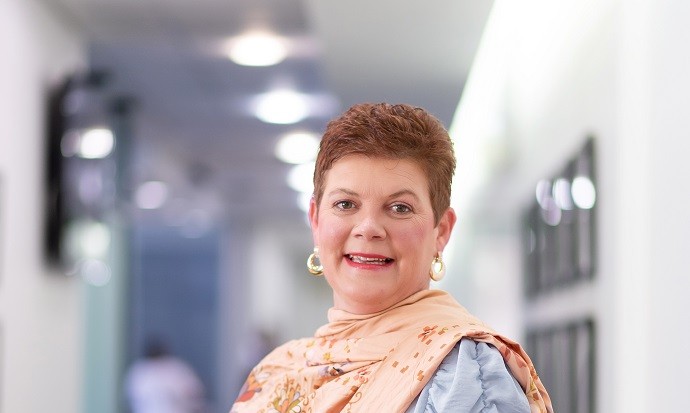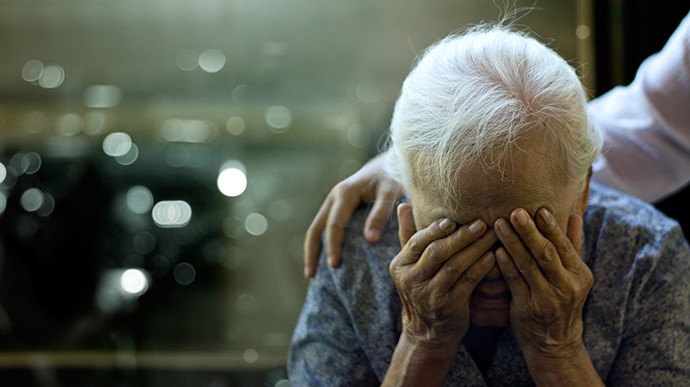Professor Vanessa Steenkamp is a medical scientist who is registered with the Health Professions Council of South Africa, and has dual registration as a biological scientist and toxicologist with the South African Council for Natural Scientific Professions.
She completed her first two postgraduate degrees – BSc (Hons) and MSc – at the University of Pretoria (UP) and completed her PhD at the University of the Witwatersrand, where she worked as a researcher and lecturer. After 10 years, she returned to UP and has been doing research and lecturing at the University for 23 years. Prof Steenkamp says that UP has a culture in which she has been able to cultivate and curate a vast wealth of experience in research. She has great appreciation for her colleagues with whom she has forged great collaborations and collectively promoted and extended expertise to other universities and institutions.
Within the University, Prof Steenkamp has a long-standing collaboration with two groups in the Department of Chemistry. She works with Prof Vinesh Maharaj on the isolation and identification of bioactive phytochemicals in traditional herbal remedies, and with Prof Darren Riley on the synthesis of new compounds based on the backbone of drugs originating from plants, in the hope of synthesising new compounds with better efficacy.
Prof Steenkamp heads UP’s Phytopharmacology Unit, which specialises in the development of drugs to treat dementia, especially Alzheimer’s and Parkinson’s diseases; and promotes wound healing, antimicrobial activity and anti-cancer activity. Regarding the latter, the unit is investigating genetic polymorphisms associated with anti-cancer drug efficacy. The goal of precision medicine is to improve the clinical outcomes of patients by considering their individual variability. Pharmacogenomics aims to understand how genetic variants influence drug efficacy and toxicity, and is therefore an important tool for precision medicine as it can guide the clinical management of patients based on their unique genetic make-up.
Asked if she has begun new research in the past 18 months, Prof Steenkamp says: “All research is new. Once a specific project is completed, new questions arise – this is the cycle of research. We are developing an in vitro neurological model that is more representative of the in vivo situation. This involves differentiation of cells to form neurites. We are also analysing clinical samples to assess genetic polymorphisms and drug efficacy in prostate and breast cancer, which will shed light on why some patients react to treatment and other patients don’t.”
A project that the unit is nearing completion on, and that will be taken further, is determining the cannabinoid profile of cannabis oils sold for medicinal use as well as assessing compliance of these products to South African regulations. “There are concerns as to how safe cannabis use will be ensured, how cannabis dependence and addiction will be prevented, and whether quality control measures will be implemented when it comes to cannabis and cannabis-containing products,” says Prof Steenkamp, who is a steering member of the Cannabis Organisation of the University of Pretoria, which advances the creation and dissemination of knowledge regarding cannabis.
On what the public should know about phytopharmacology, she says: “The use of botanicals is well rooted in medical practice. Ancient doctors methodically collected information about herbs and developed well-defined pharmacopoeias to treat a variety of ailments. More than a quarter of all drugs used today contain active ingredients derived from those same ancient plants.
“In South Africa, traditional healers are the first point of call for most of the population. There is also the belief that herbal remedies are better and safer because they are natural, which is why many people buy products from herbal shops or over the internet. But the public must realise that these herbals contain active compounds that have physiological effects and that could interact with Western medicines. To avoid possible adverse effects, it is important that a patient discloses to their physician that he or she is taking herbal remedies, whether with chronic medication or before medication is prescribed. Furthermore, natural remedies are not always safe, and buying them over the internet or from unregistered producers poses the risk of toxicity.”
The professor says she aspires to contribute to knowledge in her field and ensure that this knowledge has a positive impact on human health and well-being. Her research matters, she adds, because drug discovery and development are among the most important translational science activities that contribute to human health and well-being. “My research seeks to develop drugs to treat diseases for which there is currently no medication. If successful, this will ultimately improve the quality of life of patients with these diseases.”
She advises school learners or undergraduates who are interested in her field to read up about it, make contact with somebody working in the field and to ask lots of questions. “You need to ensure that you are fully satisfied and can make a sound decision as to whether this field is for you,” she says.
Prof Steenkamp’s hobbies are gardening, reading and being in nature. “I believe my research interest flows into my gardening – knowing the uses of different plants as well as propagating them. I read widely on research topics, but also find time to unwind by reading intriguing, factual novels.”

 Story
Story
Get Social With Us
Download the UP Mobile App